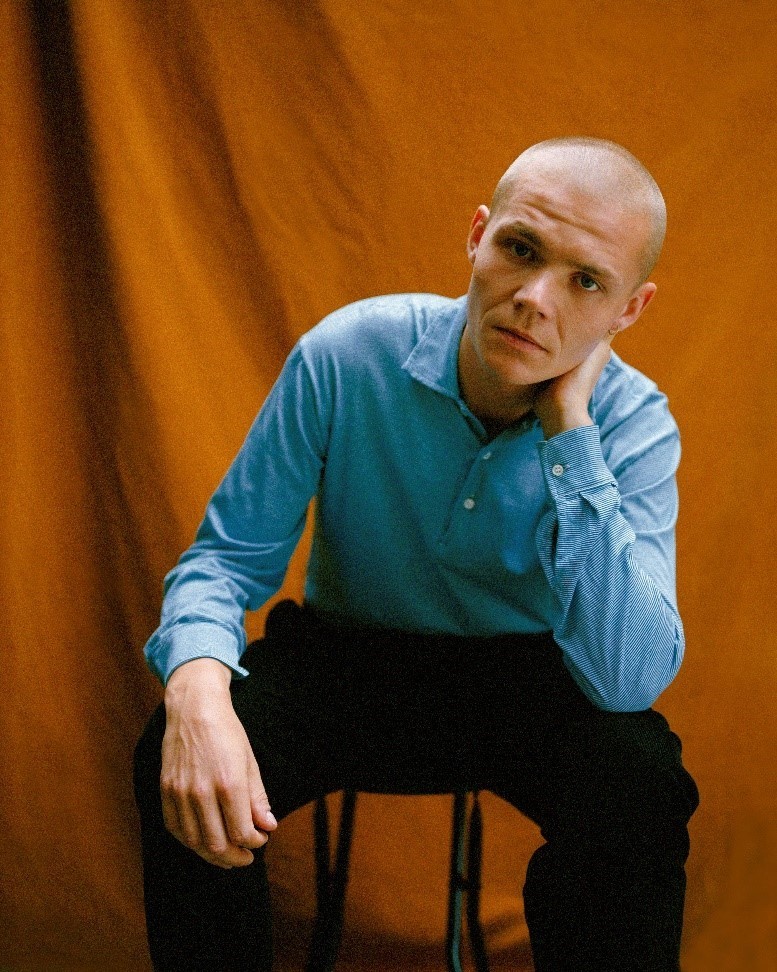Plus, get your first look at the rising star’s latest music video, Outside Sublime
- TextTom Connick
Westerman’s warped, weird and wonderful take on pop has been the soundtrack of the 2018 underground. His breakout single Confirmation, released back in January, was an oddball cut of lyrical electronica, and the perfect introduction to the 27-year-old singer-songwriter’s electronic alternative world. Since then, the likes of Edison and Albatross have only served to further that ambition, taking the straightforward songwriting sensibility of his past life as a guitar-led folk singer, and imbuing it with a similar otherworldliness to Bon Iver’s recent, heavily-synthesised 22, A MILLION reinvention. As those ‘ones to watch’ lists for 2019 fast approach, Westerman is a sure bet for future stardom.
His new single Outside Sublime is proof that the hype has not been misdirected. Taking influence from idiosyncratic producers like Arthur Russell and David Byrne, Westerman’s mellow vocal is carried by an exploratory take on melody. “I wanted to write a note to a struggling friend,” says Westerman of the track. “I hoped it would be an arm on the shoulder for anyone finding things difficult. I wanted to be really direct with this, and for it to feel joyful and powerful in an unobtrusive sort of way.”
Below, get your first look at the stunning video for Outside Sublime – a clip which traces the edges of AI’s uncanny valley, creating a mood that’s both dazzling and disconcerting. We also caught up with the singer, to talk through his breakthrough year, recent ADHD diagnosis, and plans for the future.
You’ve had an incredible year – what have been the highlights?
Westerman: Thanks, yes it’s been a bit mad. I really enjoyed being asked to play in Europe more this year – Midi Festival in Hyères was magical and we just got back from a small tour of Europe which went well. My biggest highlight has been the time spent out in Portugal recording. It’s a privilege to be able to make music full-time and I’m quite happy with how productive I’ve been this year.
How does it feel to have people connecting to your newer music? Why do you think this new sound has connected so much?
Westerman: I don’t know why, but it’s lovely that people are taking something from it. I think there is a lot more noise to cut through now as there is so much music in the digital ether. Sometimes it can take time for what you are doing to translate. I guess I have been trying to make the music more colourful – maybe that has helped. I don’t know really.
What prompted you to start exploring electronic music?
Westerman: Working with Bullion – my friend and producer. His grounding is in electronic music and he is meticulous with sound, the actual sonics of the music. I had never really thought about texture and space in music, but it’s easier to visualise when you have the track in front of you. You just have an enormous palette with software. I keep an organic melody at the core of it – I think there is more life that way and there is good contrast to be found there.
Do you think that folk music still has a place in what you’re creating today?
Westerman: Yes absolutely. Folk music seems to have gone out of fashion again, but for me folk tradition just means the music is people centric and that’s still at the core of what I am interested in. The instrumentation for me is quite incidental. Also, structurally speaking, good folk songs are pretty flawless in terms of the undulation of the melody. I try and keep that with me.

You were diagnosed with ADHD last year. How has that affected your understanding of yourself? Has it impacted your work at all?
Westerman: It’s a big reshuffle. Not so much with the music because the music has always served as a kind of therapy for me. But I have been trying to reappraise my story and to be more compassionate to myself which is a big shift. I think we are all seeking better self understanding while we’re here so it has been a positive thing for me.
This new video is stunning – how does it feel to see the visual side of what you do come to life?
Westerman: I love it, it’s fascinating. I really enjoyed sourcing the music out and getting other people’s visual impressions of my work. Creativity is always symbiotic in one way or another and it’s been good to embrace that. I’m glad you like it!
What’s next? Any big plans for 2019?
Westerman: I’m going to record an album early next year. I hope it’ll be succinct and of interest. I want to keep developing the performance element of my work – that has been a new thing after a couple of years of playing solo. It can be freeing to have the help of other musicians to create the framework for you to react within. I think I’ll be travelling a lot too – I’m looking forward to seeing new places and speaking with new people.











